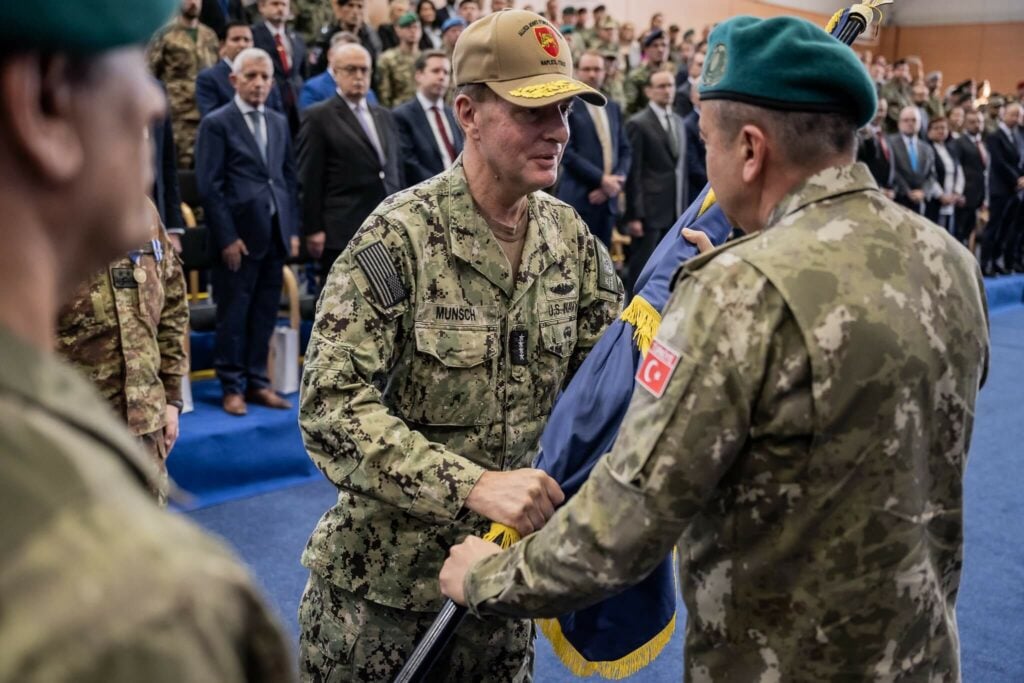Turkey on Tuesday took command for the first time of the NATO-led force in Kosovo to a backdrop of a volatile situation in the country’s north and soaring tensions with former wartime rival Serbia, Agence France-Presse reported.
Around 30 gunmen ambushed a police patrol in the village of Banjska, near the northern border with Serbia in late September, killing a Kosovo police officer.
It was one of the most serious incidents in ethnic Albanian-majority Kosovo since it declared independence from Serbia in 2008. Belgrade still refuses to recognize the move.
The gunmen then retreated and barricaded themselves in an Orthodox monastery where they were involved in an hours-long shootout.
The United States and the European Union have voiced deep concerns over the incident, urging restraint.
During a handover ceremony in Pristina on Tuesday, Turkish Major General Özkan Ulutaş said he was aware of the responsibility at the helm of KFOR in a “sensitive period that Kosovo is going through,” a KFOR statement said.
The #KFOR Change of Command ceremony was presided over by the Commander of Allied Joint Force Command Naples, Admiral Stuart B. Munsch and was attended by numerous civilian, military and diplomatic authorities. pic.twitter.com/I2SXD1xemT
— NATO Kosovo Force – KFOR (@NATO_KFOR) October 10, 2023
He will be commanding the 4,500-strong KFOR, where troops are provided by 27 NATO and partner countries, for the next year.
Pristina has accused Belgrade of backing the entire operation in Banjska claiming the goal was the annexation of Kosovo’s north.
The suspected leader of the commando that killed the officer, Milan Radoicic, admitted to masterminding the deadly attack.
Radoicic, also former vice-president of the main political grouping of Kosovo Serbs, was briefly detained in Serbia earlier this month and freed on a conditional release.
KFOR has been deployed in Kosovo after the 1998-1999 war between independence seeking ethnic Albanian guerrillas and Serbian armed forces.
The war, that claimed around 13,000 lives, ended with the NATO bombing of Serbia that forced it to withdraw its military and police from Kosovo.

